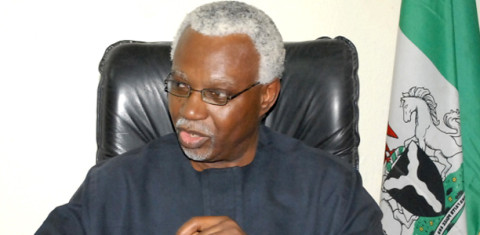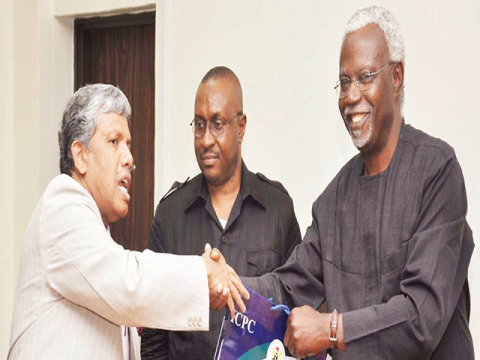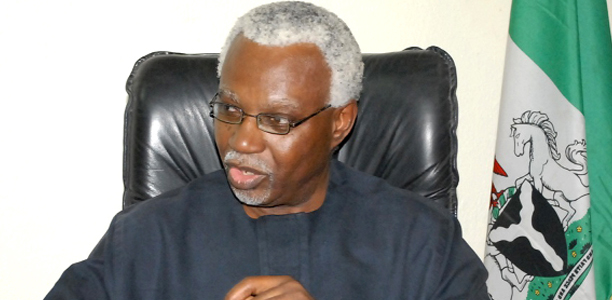
If your intention is to travel out of the country and you are seeking to get a visa to your destination by all means, if you are not careful, you may end up in jail. And if you are among those involved in touting to get visa for desperate prospective travelers, whether you work within or outside the embassies in Nigeria, if you do not stop right now, your days on the streets are numbered because jail is also waiting for you. It does not matter whether you are a “legal tout” or “illegal tout”, jail is clearly written in the horizon for you.
If you were at the one day seminar on visa acquisition organized by the Independent Corrupt Practices and Other Related Offences Commission (ICPC) in Lagos on June 17, 2014, this year, this understanding would have been more crystal clear to you. The objective is not to prevent or discourage Nigerians from travelling abroad, actually, the goal is to help simplify the process of visa application to make things easier for Nigerians by getting rid of the touts that make life miserable for innocent Nigerians who seek to engage in legitimate act of travelling.
To this end, the ICPC had put together this seminar which has its theme as “Instilling Integrity in Visa Procurement Process in Nigeria.” Participants include ministerial department officials, representatives of consulates of different embassies and members of the public.
Reiterating the importance of the integrity of the process during his welcome address at the seminar, the ICPC chairman, Barrister Ekpo Nta made it clear that the Commission was determined to “restore sanity into the visa process” as a means to improving the image of Nigeria. He reckoned that discouraging the public from patronizing “illegal visa cartels” and getting duped in the process was the best way to do this. He informed that the full weight of the law would be visited on culprits and that the ignorance of the law would not be an excuse for anyone whether as a victim or as a perpetrator.
Barrister Nta noting that traveling between different countries are regulated by “issuance of visa to potential travelers under different conditions” observed that these conditions to the ordinary traveler “can be very cumbersome and complicated and could pose a problem which requires third party intervention. The third party could be a registered knowledgeable Travel Agent/Consultant, a friend, a family member or a crook. However, where there is an infringement whether by mistake or deliberate – it has serious consequences. These consequences could result in the traveler losing the right to travel temporarily or permanently, embarrassment, arrest, deportation, imprisonment etc.”
Barrister Nta who agreed that the imposition of “unreasonable procedures by some embassies seemed to have exacerbated the already ‘complicated’ visa acquisition process which then tend to promote corruption-prone process by unofficial cartels within and outside the embassies,” insisted that the seminar “is part of ICPC’s further intervention in restoring sanity and integrity” as well as raise “awareness on how to acquire visa in transparent manner.”
In his speech, the Special Guest of Honour, Ambassador Aminu Bashir Wali, the Hon. Minister of Foreign Affairs, connected the commission of crimes by a section of Nigerians outside the shores of the country to the activities of “touts and miscreants” who constituted themselves “into visa procuring agents” who lure and deceive “law abiding free citizens into engaging knowingly or unknowingly in visa scam.” “Some of those who deliberately patronize touts using fake documents to deceive visa issuing officials,” he insisted are the ones who “travel out of the country to indulge in all forms of criminal activities which dent the image of our country.”
The Hon. Minister of Foreign Affairs advised the embassies in Nigeria to “complement the good work of his Ministry and the ICPC by monitoring the activities of their officials and reporting any unscrupulous visa agents to ICPC through the appropriate channels.” He lauded the efforts of the ICPC while noting that this seminar came at the right time when the Federal Government is trying to clean up the image of the country in the international scene.
Mr. Abbia Udofia, the ICPC Deputy Director for Legal Affairs in his presentation focused on the legal and non-legal ways of acquiring visa. He pinpointed the consequences of using touts and presenting false documentation for acquiring visa. He admitted that most Nigerians, especially those desperate to travel and who patronize touts were not aware of the legal consequences of what they were doing and reiterated that in the application of law, ignorance has never been accepted as an excuse and would not be accepted. He advised Nigerians to educate themselves and follow the necessary guidelines, not just to avoid being taken advantage of by crooks, but also to avoid being criminally prosecuted for collaborating to engage in corrupted process.

Mrs. Ralie Malik who represented the Indian High Commissioner of India to Nigeria, Mr. A.R. Ghanashyam, spoke about the efforts of the Indian Commission to simplify the visa acquisition process for those who could provide the required authentic documentation. She informed that it was now possible to apply for the Indian embassy on line at www.indianvisaonline.gov.in/visa.
In his own contribution, the national president of Travel Agents Association of Nigeria, Mr. Aminu Algoa lamented about the disrespect with which Nigerians were being treated by the embassies in Nigeria. He believed that Nigerians did not deserve the way they were being treated and felt that something should be done about it. He agreed that this seminar is a step in the right direction. He informed that its Association is a credible organization that anyone interested in assisting the sanitization of the visa acquisition process could liaise with. He claimed the Association has about one thousand members across the country and employed over six thousand Nigerians with a turnover of about 1.19 billion naira annually.
Delivering his own paper, Ambassador Abdulazeez Dankano who is a Director for Consular and Immigration Services at the Ministry of Foreign Affairs dwelled on the services of his Ministry vis-a-vis the procurement of visa for Nigerians and foreigners who want to visit the country. While explaining to the participants what Note Verbale meant in the acquisition of visa by government employees, he warned Nigerians to beware of touts and miscreants who claim capability to procure visa through Note Verbale. He informed that the Ministry “is working closely with all the diplomatic missions in Nigeria to reduce the difficulties in visa procurement and to ensure the rights and welfare of all Nigerians are protected.”
Contributing at the seminar, Mr. T. A. Udeyin, an Assistant Controller-General of Customs (Passports) representing the Controller-General, Mr. David Paradang, took the participants through the new process of obtaining passports and the types of passports obtainable. He also dwelled on who was qualified to acquire what particular passport or the other. He explained that the process of ensuring that the Nigerian travelling passports are less vulnerable to manipulation and forgery even digitally has remained a continuous process.
During the interactive session, the debate was very impressive and illuminating as it was interesting. Some of the participants used their experiences to explain the issues that were bothering them and pleaded with the ICPC to continue in his efforts to educate, inform and sensitize Nigerians about the dangers in engaging in visa scams. Some of the issues that emerged during the interactive session included the following:
a) Increasing the involvement of the various Student Union bodies across the country as part of the sensitization and education campaign.
b) Reciprocity of treatment of Nigerians on the visa issue.
c) Control of “legal toust” embedded within the embassies to reduce visa scam.
d) Inter – agency communications among all the security agencies to prevent fraud and scams.
e) The need to improve the handling of travelling passports so that the security chips embedded in them would be protected.
f) The need to expedite the judicial process while at the same time guaranteeing that the innocent is not unjustly punished and the guilty is not able to escape the long arms of the law.







